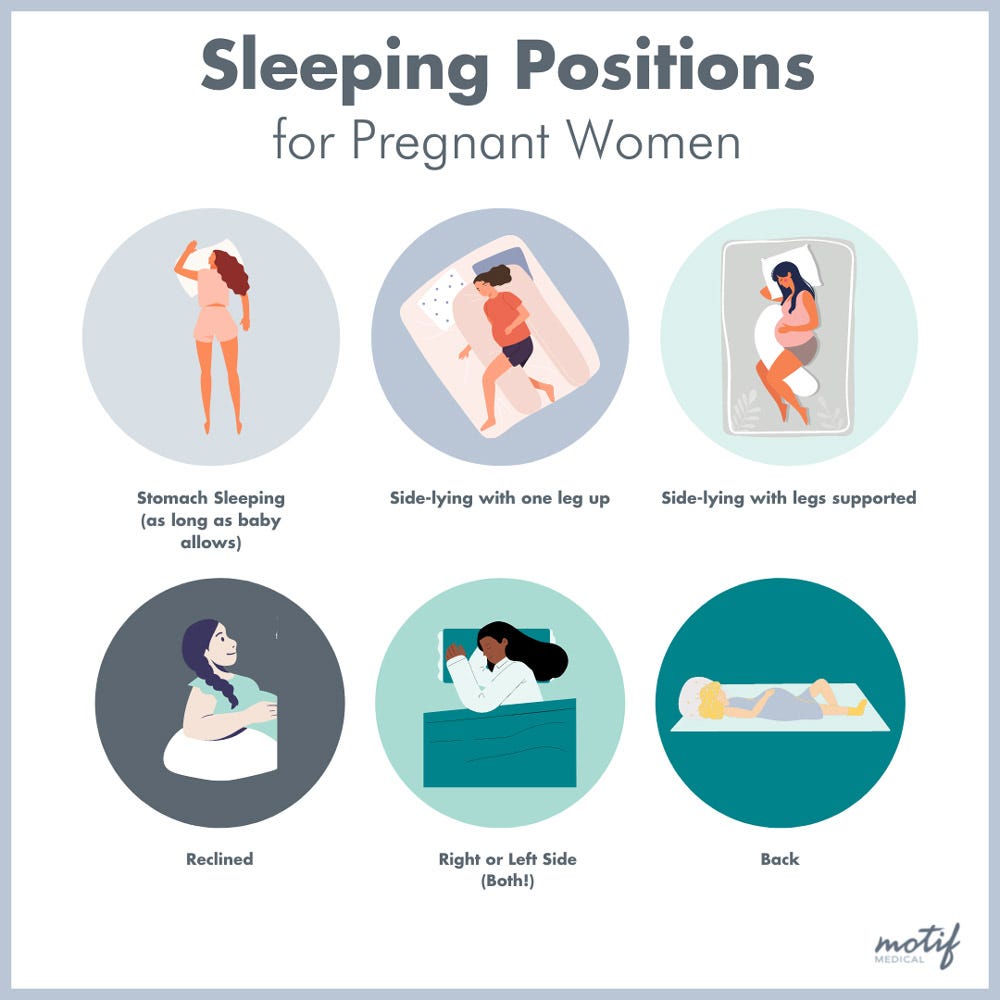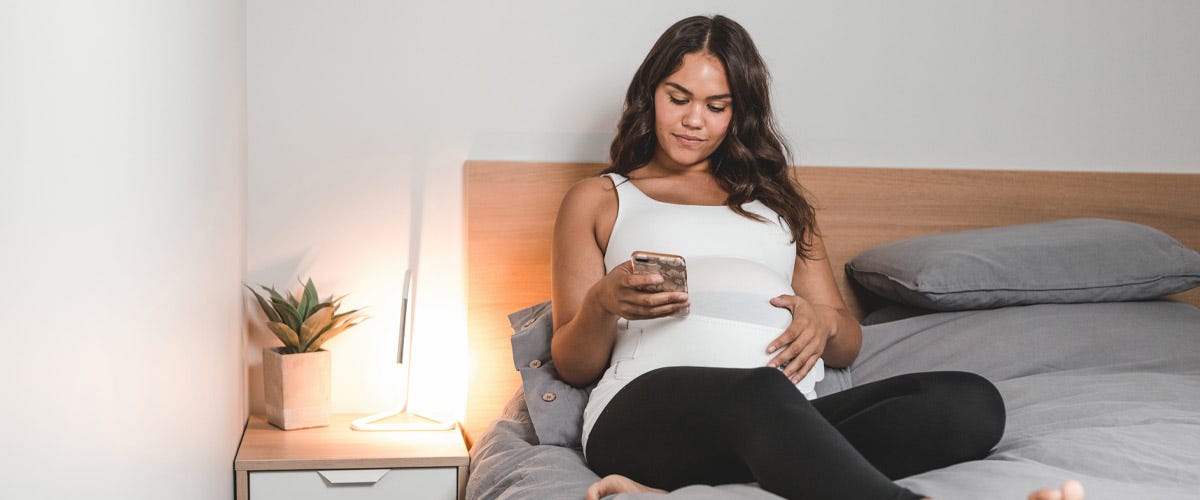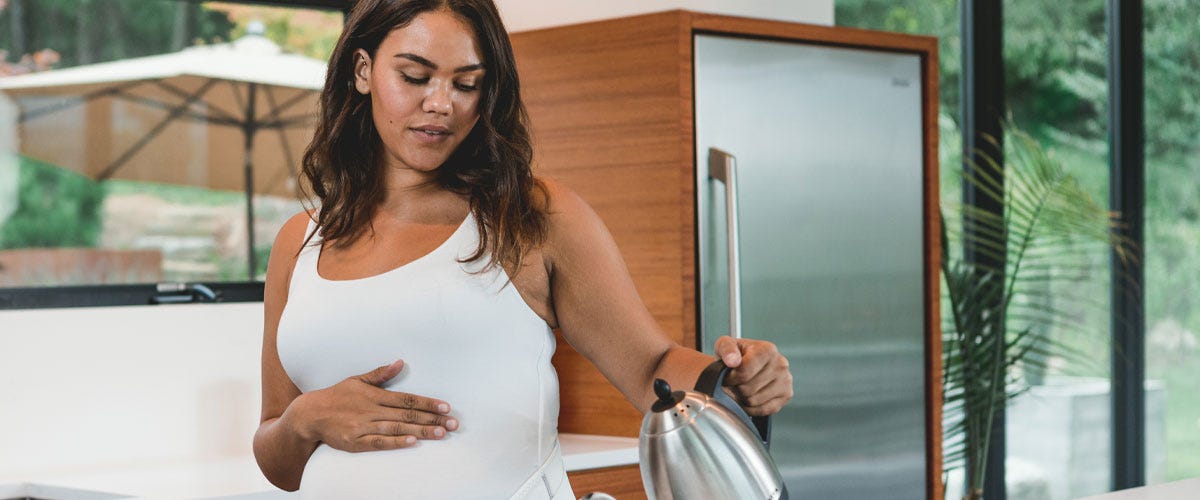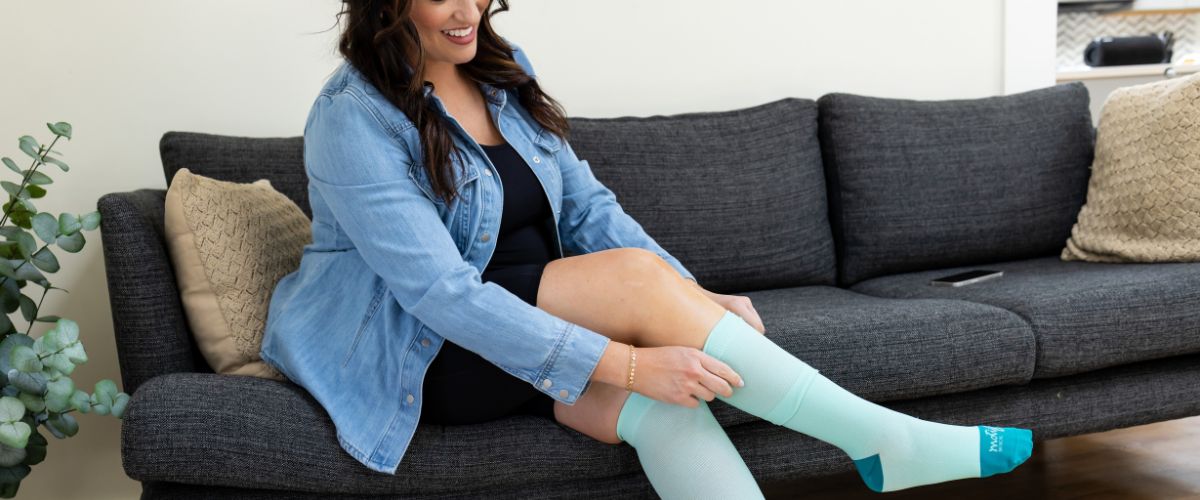Getting good sleep is always an important part of life. Sleep is the time when your body resets, detoxifies, and recharges for the next day. It's also vital for cardiovascular health and brain function and is so essential that a lack of sleep can lead to pregnancy complications. Unfortunately, as your developing baby and growing uterus put more pressure on your hips and back it can be increasingly difficult to find comfortable sleeping positions. Ob-gyns and midwives all over the world hear about the difficulties of maternal sleep and thankfully we have some good suggestions to help you get a good night's sleep throughout your pregnancy.
First let's talk about the positions to try and if there's any time you should avoid them:
Stomach sleeping
If you're a stomach sleeper, you're probably wondering how you'll sleep when you're pregnant. The good news is that you can keep sleeping on your stomach until it's no longer comfortable for you. Eventually, you won't feel good laying on your stomach and won't be able to fall asleep in that position, so you'll move and find a new comfy spot to sleep. Since the timing of that is determined by your own comfort level, it makes it easy to transition to a new normal.
Times to avoid: when it's no longer comfortable
Side-lying
Sleeping on your side is the most popular sleep position during pregnancy. This position allows for optimal blood flow, reduces pressure on hemorrhoids, and aids digestion. Some people like to sleep on their side with one leg up and keep one leg straight, while others bend both legs with a pillow between their knees to their ankle. Placing the pillow only between your knees can put additional strain on your hips, since this position has your legs in an external rotation, so I do recommend making sure your pillow will support both your knees and your ankles--a yoga bolster can work really well for this! You can purchase pillows to support you that are specifically designed for use during pregnancy or some people just buy extra pillows they can place wherever they want more support. Pregnancy pillows are big, but they provide wonderful support for side sleeping and are less likely than normal pillows to fall off the bed as you move around. As you progress through your pregnancy you may need to support both your belly and your legs while you are on your side.
Does it matter which side you sleep on?
You may have heard some talk about the left side being the best for sleeping during pregnancy and it's true that this side provides optimal blood flow to the placenta and the rest of your body since it puts the least amount of pressure on your vena cava while you're laying down. Your inferior vena cava runs along the right side of your body and this vessel is what brings all of the blood flow up from the lower half of your body, but sleeping on your right side will not compress this blood vessel like back sleeping does. In addition, if you only sleep on one side that hip is going to be quite sore when you get up in the morning! If side sleeping is the most comfortable position for you, its recommended to switch sides throughout the night. Alternating sleep positions will help avoid hip and back pain when you get up in the morning while providing optimal blood flow throughout the night.
Reclined
If you are struggling with acid reflux or heartburn, propping yourself up with pillows will be your best position. A reclined position will reduce pressure on your stomach and esophageal sphincter to keep those chest discomforts away while you sleep.
Times to avoid: If you have hemorrhoids.
Back Sleeping
Sleeping on your back is not recommended during the second and third trimesters, as it is associated with negative outcomes. As your uterus grows to accommodate your baby, it can put pressure on your inferior vena cava, which compromises blood flow and increases blood pressure. But don't panic if you wake up on your back! Take it as a sign from your body that you need to move to a new position.
Times to avoid: After the first trimester or any time it makes you feel light-headed, dizzy, or uncomfortable.


Throughout the Pregnancy
In the first trimester, most pregnant women don't need to modify their sleep positions. This is a time when the uterus is still below the pubic bone so many people are able to continue sleeping as they had been before they got pregnant. Occasionally, bloating, heartburn, nausea, and shortness of breath can make finding a good position difficult. Back sleeping, can even exacerbate pregnancy symptoms such as heartburn and nausea, so sleeping on your side can provide relief and allow for quality sleep. In addition to body discomforts, many people prefer to take their supplements in the evening and if you're a stomach sleeper you may find this leads to indigestion or acid reflux, which is another time when side sleeping may be the ideal solution for you! The first trimester is the perfect time to begin using pillows to find a comfortable way to sleep as you explore new positions that are comfortable for your changing body.
Once you reach 13 weeks of pregnancy, you're in the second trimester and your uterus has grown beyond the confines of your pelvis . You may start to be more uncomfortable laying on your stomach and need to move to a side-lying position, if you haven't already done that. In general, this trimester is the most comfortable time of pregnancy, so you may be able to keep sleeping in whatever positions you've previously found to be comfortable.
As you get nearer to your due date, the third trimester may bring a new group of sleep problems. Restless leg syndrome, leg cramps, and insomnia can increase bedtime issues in late pregnancy. If you haven't already added a magnesium supplement to your nighttime routine, now is the time to start! Magnesium has been found to help with all of the symptoms listed above and studies have shown supplementation also reduces the risk of other pregnancy complications. 3 Using guided meditation or other relaxation techniques can help you unwind at the end of the day and reduce your trouble sleeping or falling asleep and its also a great way to help yourself mentally prepare for labor and delivery.
Whenever you're struggling to get a good night's sleep, talk with your healthcare provider about the symptoms you're experiencing. Follow the medical advice of your ob-gyn or midwife and hopefully you will be well on your way to deep, restful sleep.
Resources
- Hashmi AM, Bhatia SK, Bhatia SK, Khawaja IS. Insomnia during pregnancy: Diagnosis and Rational Interventions. Pak J Med Sci. 2016;32(4):1030-1037. doi:10.12669/pjms.324.10421
- Cronin RS, Li M, Thompson JMD, et al. An Individual Participant Data Meta-analysis of Maternal Going-to-Sleep Position, Interactions with Fetal Vulnerability, and the Risk of Late Stillbirth. EClinicalMedicine. 2019;10:49-57. Published 2019 Apr 2. doi:10.1016/j.eclinm.2019.03.014
- Zarean E, Tarjan A. Effect of Magnesium Supplement on Pregnancy Outcomes: A Randomized Control Trial. Adv Biomed Res. 2017;6:109. Published 2017 Aug 31. doi:10.4103/2277-9175.213879








